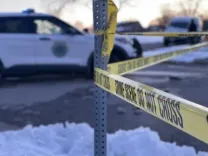How is Syria's diplomatic outreach unfolding amid internal unrest?

Synopsis
As Syria's new leadership embarks on diplomatic missions across the globe, it faces a daunting sectarian crisis that jeopardizes its governance. Can the country navigate these turbulent waters and achieve stability? This article explores the delicate balance between international engagement and internal strife.
Key Takeaways
- Syria's diplomatic outreach aims to break international isolation.
- Internal sectarian tensions pose a significant governance challenge.
- Recent violence has resulted in over 100 fatalities.
- The government is negotiating with local leaders to restore peace.
- Experts warn that without inclusive governance, chaos may ensue.
Damascus, May 7 (NationPress) As Syria's new leadership accelerates its diplomatic initiatives through visits to global capitals, it simultaneously faces a growing internal sectarian crisis, presenting a significant challenge to its ability to govern a divided nation.
Interim leader Ahmed al-Sharaa arrived in Paris on Wednesday, marking his inaugural official visit to a European nation since taking office after the removal of Bashar al-Assad in December 2024.
According to Syria's state news outlet SANA, al-Sharaa is set to engage with French President Emmanuel Macron regarding reconstruction efforts, collaboration in energy and aviation, regional security challenges, and notably the Israeli airstrikes that have increasingly targeted Syrian military facilities.
This diplomatic initiative follows Asaad al-Shibani's visit to the United States, where he raised Syria's new flag at the United Nations and held discussions with senior US officials. Both trips indicate the new administration's attempts to end Syria's prolonged international isolation and attract investment for the country's economic recovery.
However, as Syria seeks global recognition and support, its internal stability is deteriorating under the resurgence of sectarian tensions, especially concerning the Druze minority in the southern region, as reported by Xinhua. The recent violence in Jaramana, Ashrafiyat Sahnaya, and parts of Sweida has resulted in over 100 fatalities, according to the Syrian Observatory for Human Rights.
Fighting between local Druze fighters and pro-government forces escalated after the emergence of an audio recording attributed to a member of the Druze community containing remarks deemed offensive to Islam.
The government has responded by deploying a strong security presence and negotiating with local leaders. A ceasefire was established in Jaramana, but tensions have persisted in Ashrafiyat Sahnaya and Sweida, where Druze religious leaders' calls for international intervention have exacerbated the crisis.
Israel, which has its own Druze population, has warned that it may intervene to protect Druze communities in Syria and has already conducted several airstrikes on Syrian military targets recently.
The ongoing crisis has reignited fears about Syria's susceptibility to division.
Syrian political analyst Mohammad Nader al-Omari argues that recent developments reveal what he describes as "explosive mines" that could lead to Syria's territorial disintegration.
"There are serious risks to national unity that must not be overlooked," al-Omari expressed on Facebook, cautioning against both "external manipulation" and internal fragmentation.
In light of this, Syria's National Building Movement has issued a statement calling for an immediate end to sectarian violence, the disarmament of local militias, and the initiation of a comprehensive national dialogue.
The party advocated for drafting a transitional constitution, forming an inclusive government, and establishing a judicial framework for transitional justice.
"This moment demands political courage and a commitment to justice, participation, and equal citizenship," the statement emphasized.
Experts warn that without inclusive governance and a viable national reconciliation process, Syria risks reverting to chaos.
"There is no external solution to Syria's challenges," al-Omari remarked. "It must emerge from within, commencing with dialogue, accountability, and healing," he concluded.









